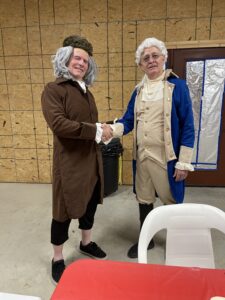
Ever since my mother’s three brothers and one of her three sisters returned home from serving in World War II my family has gathered for a Fourth of July reunion. While competing circumstances have caused some hiatuses over the last seventy-seven years, we have been fairly consistent in our celebration of life. We do what all families do at reunions, meet, eat and subconsciously soak in the subtle changes from childhood to absence.
Those changes are what John Denver wrote about in 1971 in his song Poems, Prayers and Promises:
♪ The days they pass so quickly now, nights are seldom long
Time around me whispers when it’s cold
The changes somehow frighten me, still I have to smile
It turns me on to think of growing old ♪
Denver, as I was, was born in 1943, therefore he was only 28 when he was contemplating aging. He died in a plane crash in 1997 so his early thoughts about growing old were prescient. When I listen to his young man’s song about encroaching old age I am impressed, and sobered, by his understanding of the physical and emotional aspects of aging. I do not recall even the vaguest concern of not being 28; I am now more aware.
Our current political debate is highlighted by President Biden’s age of 80 and former President Trump’s 77. Depending upon our partisan preferences we monitor each man’s speech and movements in a search for affirmation or condemnation of our hopes or fears for our nation. For although the United States just celebrated our 247th birthday, we Americans think of ourselves as a young, vibrant country that is always trying to perfect our union. The young John Kennedy is our ideal. We may need the wisdom sometimes brought by age but we crave the vitality often born of youth.
But age does not guarantee good judgment and youth may encourage recklessness. Each of us knows the angst of experiencing what Camelot’s Guinevere called for, and eventually obtained, “A day she would always rue”. Ben Franklin was 70 years old in 1776 and George Washington was 44. Most people would say both men had good judgment. Both showed wisdom and courage, two of the character traits we need in our leaders. Their age was not a factor. As John Denver concluded, “It’s been a good life all and all” and:
♪ How sweet it is to love someone, how right it is to care
How long it’s been since yesterday and what about tomorrow?
What about our dreams and all the memories we share? ♪
Well, back to our family’s Fourth of July Reunion. The singing was poignant, the bar-b-q was well seasoned, some members were young, some no longer were and, of course, numerous loved ones were sadly no longer with us. However, “I have to say it now, the changes do not frighten me” and next year will bring more. Some will be melancholy, some will be challenging, some will be interesting, but what it all will be is a continuing party.





